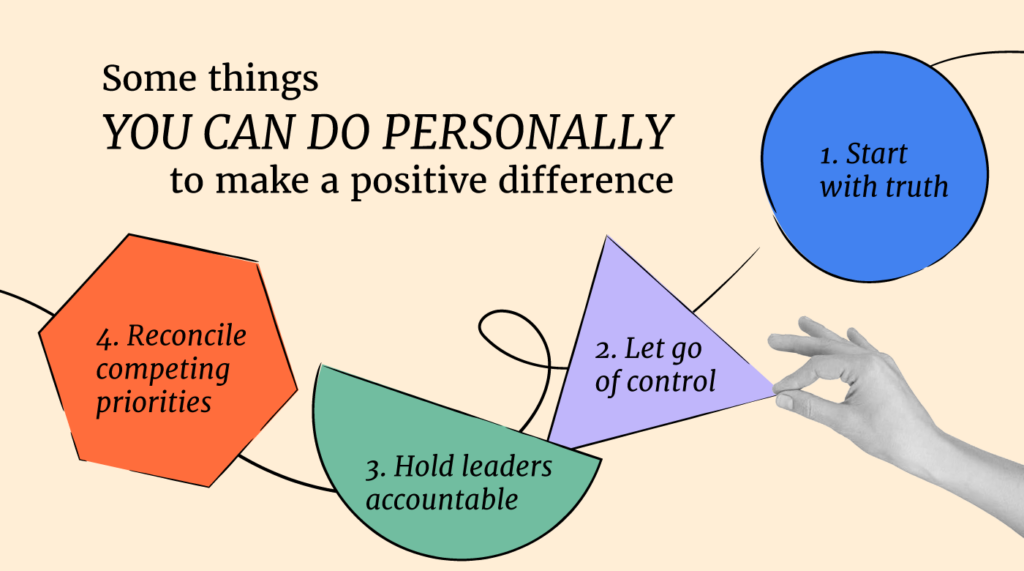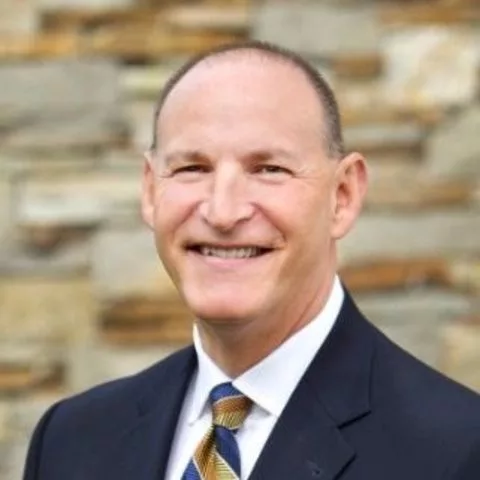As lead author of the book, The Secret Sauce for Leading Transformational Change (2022), one thing I have learned is that while people hate change, they hate failure even more.
If you think the past couple of years has been tough with “COVID-craziness,” stay tuned for 2023. I think we can expect to face some big work-related challenges, including four in particular:
Economic Uncertainty
Depending on who you believe, this year we will face economic headwinds or a full-blown recession. Whatever the severity, you likely don't have much control over the economy, but you do have a say in how you prepare for and respond to economic conditions.
You can run scared or capitalize on others’ paranoia and inaction by prioritizing what matters and spending smart.
Hybrid Work Conflicts
Whether you believe people are more productive and engaged by working together in person or by having the flexibility and freedom to work remotely if they wish, hybrid work is here to stay.
Most organizations will be looking for the magic mix of when to bring people together face to face and how to accommodate those who want to work from home (or from a mountaintop). Tools like hot desk booking software are on the rise, helping companies make the most of their physical office spaces.
You can face this reality head-on by helping leaders learn how to lead in a distributed work environment, and by supporting talented members of the workforce who need and expect more choices in where, how, when, and with whom they work.
Wellbeing Declines
There is plenty of data to suggest that people are under unprecedented levels of stress and anxiety, which is in turn negatively affecting their mental and physical wellbeing.
Suicide rates are up, and employee engagement scores are down. Even the most talented, financially secure, and socially well-adjusted people are having a difficult time focusing and completing tasks.
You can help by showing more empathy for what people may be going through and listening like never before to people’s challenges, hopes, fears, and needs.
Lousy Leaders
What do Elon Musk, Mark Zuckerberg, Harvey Weinstein, Elizabeth Holmes, Sam Bankman-Fried, Vladimir Putin, and Donald Trump have in common?
Regardless of your political views, what your investment portfolio looks like, or whether you’re tech savvy, these leaders all share at least one thing in common: they believe they’re smarter and more worthy than everyone else.
They have all proven to be bad leaders who treat other people disrespectfully, think it’s okay to lie, and have attempted to bend or break reality to serve their needs.
There are a lot of great leaders out there too, but bad leaders can do more damage faster than good leaders can overcome the damage. You can make a difference by being a good leader, and not putting up with bad leaders.
So, what do we do about the above four trends, especially when most of us rightfully feel that we don’t or can’t control the underlying causes of the problems?
Here are some things YOU CAN DO PERSONALLY to make a positive difference:

1. Start with truth
Define Reality. Human beings have an almost limitless capacity to deny, deflect, and dismiss facts or data that do not reinforce their preferred view of the internal or external environment. Do not allow others to get away with peddling B.S. and do not permit yourself to fall into the same trap.
If you don’t know the facts, say so. If you do know the facts, say so. Transparency combined with reality is a powerful antidote to lies and misinformation. So is surrounding yourself with people who are different than you, who don’t all think like you, and who are unlikely to tell you only those things you want to hear.
Be curious about, and open to, new ideas and diverse people… even if you don’t like or agree with them.
Most often, the situation we’re dealing with is what it is, and we are where we are. Face it. Deal with it. Don’t hide behind an alternate reality or a false truth. If information makes you feel better, also ask “Is it real?”.
2. Let go of control
Newsflash… CEOs and other leaders are no longer in control of work, the workforce, or the workplace.
Talented people are in control.
Increasingly, they're choosing what they want to do and where, and what they no longer want to do and why.
Hybrid vs. in-person vs. remote work is only one example of this phenomenon, although it serves as a vivid illustration.
“The Great Resignation” is a complete mischaracterization of what has been happening in the workplace.
People are not quitting work or life. They're quitting work or life with organizations and people they cannot stand, do not respect, or do not believe in.
The talented people who're leaving aren’t the problem, the organizations and bosses they’re leaving are.
Watch these individuals re-energize, re-tool, re-skill, re-think, and re-position for the next job, career, and lifestyle.
People want (and are demanding) more flexibility, freedom, trust, and respect in the workplace.
Offer these things and you will have all the highly talented people you can handle. Fail to do so and be left behind. It’s that simple.
3. Hold leaders accountable
Being a leader is among the most serious and solemn responsibilities and privileges. It is—or should be—an honor to lead others.
We must identify, prepare, develop, recognize, and reward leaders to do the right job.
Those who treat people with dignity and respect, listen more than they talk, demonstrate empathy, value diversity and inclusion, offer flexibility, coach and teach, model trust and integrity, and deliver results are to be cherished.
Likewise, we need to rehabilitate or fire leaders who do not take their leadership roles seriously or take the people they lead for granted.
Just because someone is a ‘genius’, ‘visionary’, ‘innovator’, ‘disruptor’, rich or famous does not make them a leader.
In fact, these people may be suspect leaders if they believe they've earned the right to be leaders based on those qualifications alone.
Leadership cannot be assumed or assigned. It must also be earned. What have you done to earn it? Do you bring out the best in other people? Do you have a multiplier effect on their capabilities? Do you make others around you better?
If so, you are a leader.
4. Reconcile competing priorities
To effectively deal with some of the big challenges we’re facing, we must learn to master paradox, what I call in my book, “The Beauty of And.”
Two seemingly contradictory things can be true at the same time. In fact, when leading transformational change, addressing competing priorities is essential.
For example, we must use facts and data to make tough decisions but must also appeal to people’s feelings to motivate them to act.
Moving with speed and urgency is essential to building momentum, but we also need to create rhythm to bring others along with us and to keep everyone on the same page. Doing things differently matters a lot when driving change, but we never want to confuse difference with improvement.
Doing things better is much more effective than doing things differently. If you want to make a big difference, work toward big improvement.
As a long-time friend and mentor once taught me, “nothing is impossible for those who don’t have to do it.” If we want to make 2023 a great year, WE HAVE TO DO IT.
There is no one else who will do it for us. It’s not impossible, but it’s also not inevitable. We need to hate failure more than we hate change. If we do, we will have a terrific 2023!




